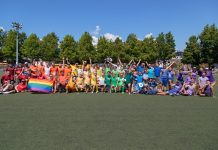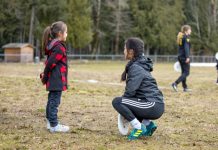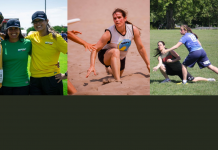Ultimate Canada Magazine – February 28, 2020
Black History Month takes place in Canada every February. To celebrate the month, Ultimate Canada interviewed four athletes about their experiences in the Ultimate community – Deontae Paul (DP), Rachel Décoste (RD), Brandon Adibé (BA), and Amber Layne (AL).
Ultimate Canada: What drew you to play Ultimate?
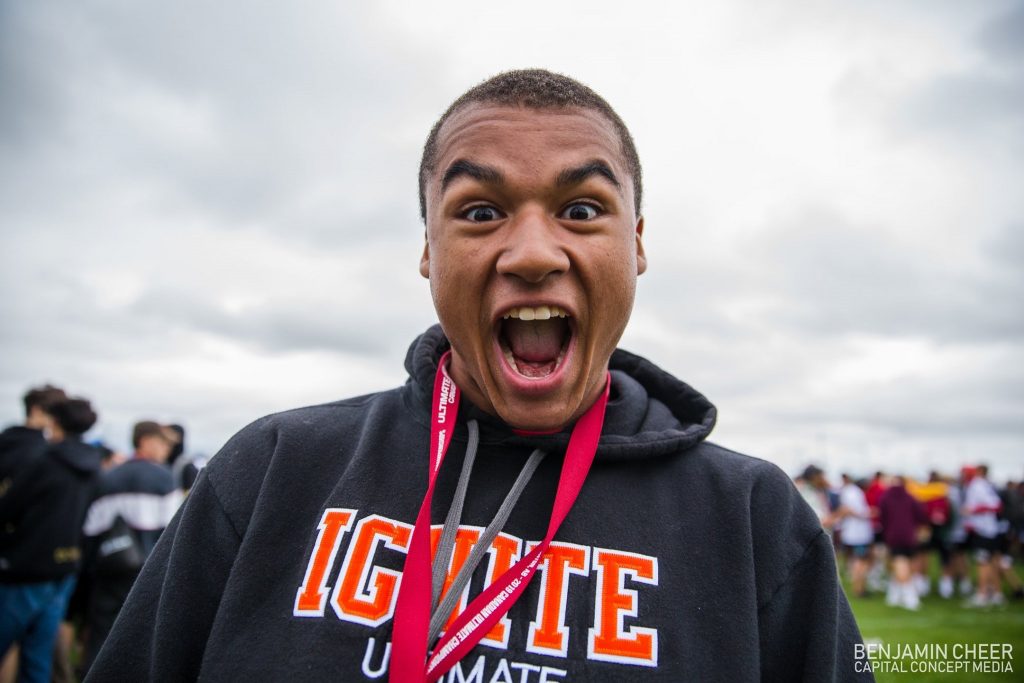
DP: I was introduced to the sport in grade 9 of high school and decided to try out for the junior program in Ottawa the following year and ended up falling in love with the sport. My original coach, Karlis Bouse, showed me how fun the sport was and really kept me in the game.
RD: My coworker said OCUA was a fun league and that my tier would be one with low pressure to perform perfectly. I attended an ultimate clinic for beginners and then joined a beginners’ team. The rest is history.
BA: I started to play Ultimate in high school after my friend Ben Cheer introduced me to the sport, after seeing him throw the disc around every day at lunchtime. I joined in one day then found it really fun, although my throwing needed some work. After some sky battles with Ben, he told me I was pretty good and that he could teach me how to throw. He later got me to join the school team and later a comp team.
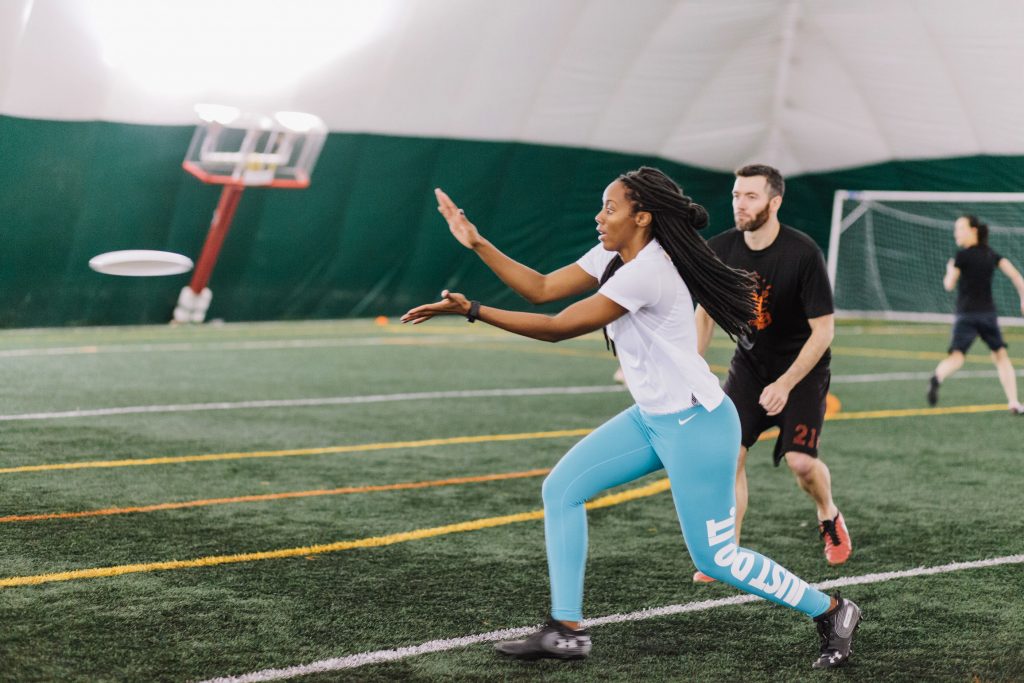
AL: I had been invited to play as a sub by a friend from university. I knew very little of the sport but after learning the rules and seeing how much running was involved I got excited! Being able to utilize my speed and endurance from my past track days was a bonus. I was soon chasing down long passes and working on my flick on the sidelines. The thrill of being competitive, catching those deep throws and analyzing the game had me wanting to join a league by the next season.
Ultimate Canada: How would you describe your experience as a player of colour in the ultimate community?
DP: My experience as one of the few black players in ultimate has been all-around positive. At most tournaments, I can count on my hands the amount of black players that are there including myself, but everyone just treats me like everyone else. Being black in the community has made me stand out a little more just because there isn’t as many of us playing but it has never been a bad thing. The ultimate community is very accepting.
RD: Being the only Black person on a team is typical of my entire life. Being “the only” has not stopped me from enjoying the game and the camaraderie among OCUA players.
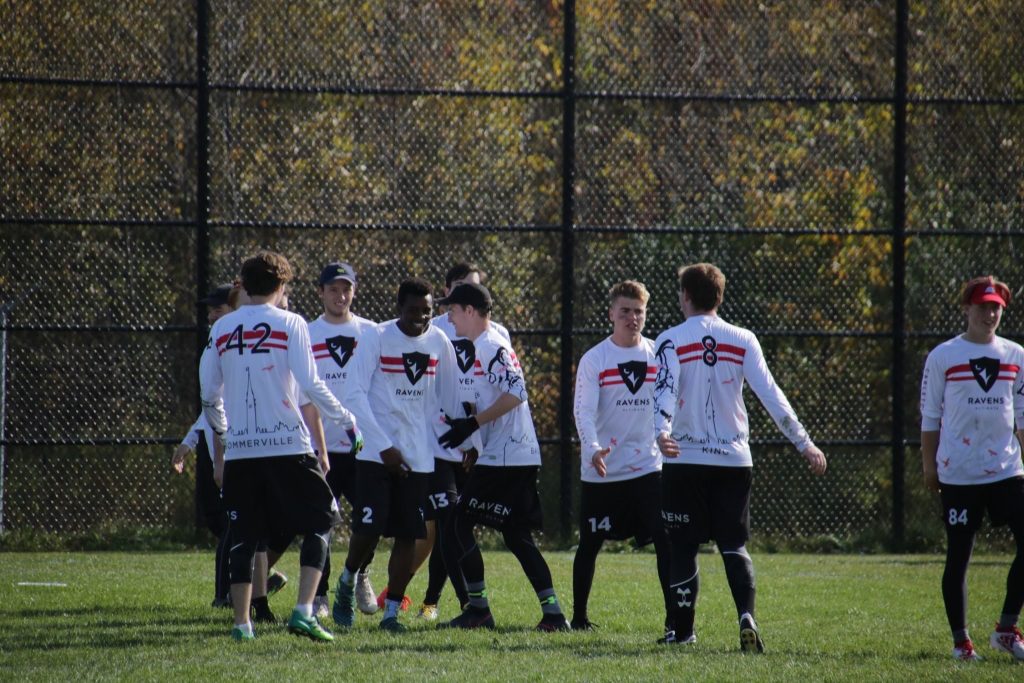
BA: At first, I felt out of place as I didn’t see many other players that I could identify with. However, through meeting some great people and having really encouraging teammates I started to become part of the ultimate community more and more. People were nothing but supportive and that really helped me acclimatize to the new environment I was a part of.
AL: In Toronto, I am used to being one of the few black people in predominantly white spaces so it doesn’t feel any different on the playing field. The ultimate frisbee community is a spirited culture. The teams I’ve played with have been inclusive. I had the same positive experience when I joined a touring team through Asia. As ultimate pushes forward in Canada, I hope to see more athletes from the black community bringing their talents to the sport.
Ultimate Canada: Since you started playing Ultimate, would you say there has been an increase in popularity for the sport in the black community? What can we do to increase the interest of the sport with athletes of colour?
DP: A few years ago when I started playing I was one of the only black players in Ottawa and I still am but now there has been more interest through high school players learning about the sport. Also since ultimate is growing in general through […] worlds teams there has been more popularity in the black community because now the sport is seeming to be more “real”.
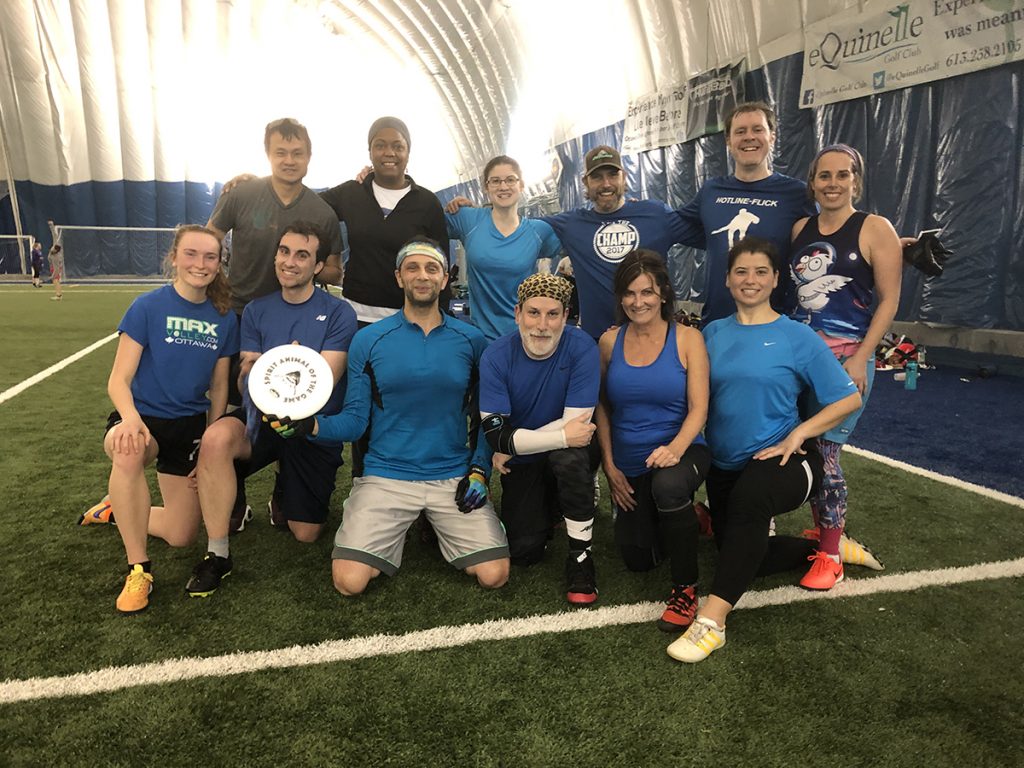
RD: In 2002, I think I may have seen one other Black person playing ultimate in OCUA in the entire season. Today, the numbers have increased ever so slightly. But it’s still far below what one would expect for a region that is >%5 […]. Many in my community gravitate towards soccer, not just because it is inclusive but also affordable. Ultimate is just as affordable as soccer. The rest will come in due time. (Fingers crossed!)
BA: Ultimate isn’t really that popular in the black community as there are many other sports that parents put their children in opposed to ultimate. I feel as though since they did not play it much in their childhood they are less likely to sign their children up for something they don’t know much about. I feel this will change in the next generation as we see more people giving ultimate a try and it becoming more of a mainstream sport.
AL: I haven’t noticed a significant increase. The key is to encourage younger participants (I wasn’t introduced to the sport until university). In order to make an impact on youth, representation certainly matters. Spreading awareness would require ultimate communities to offer grassroots programs in diverse neighbourhoods across the country. I have introduced ultimate to my students. They enjoy the pace of the game and the simplicity of the rules. These students are aware of the fitness benefits of playing ultimate, but not of many league opportunities available to them. Seeing a diverse range of athletes of colour involved in the sport and in positions of leadership can push the needle in the right direction.
Ultimate Canada: Do you have anything else you would like to add?
DP: Ultimate is the best sport I was introduced to and the community has always been accepting and friendly.
AL: I am grateful to have met some incredible people through sport. Pickup games have always been my favourite model for playing ultimate. I encourage anyone interested playing ultimate frisbee on a trial basis to seek out a game of pickup. Meet some new people. Run. Rest. Repeat.

